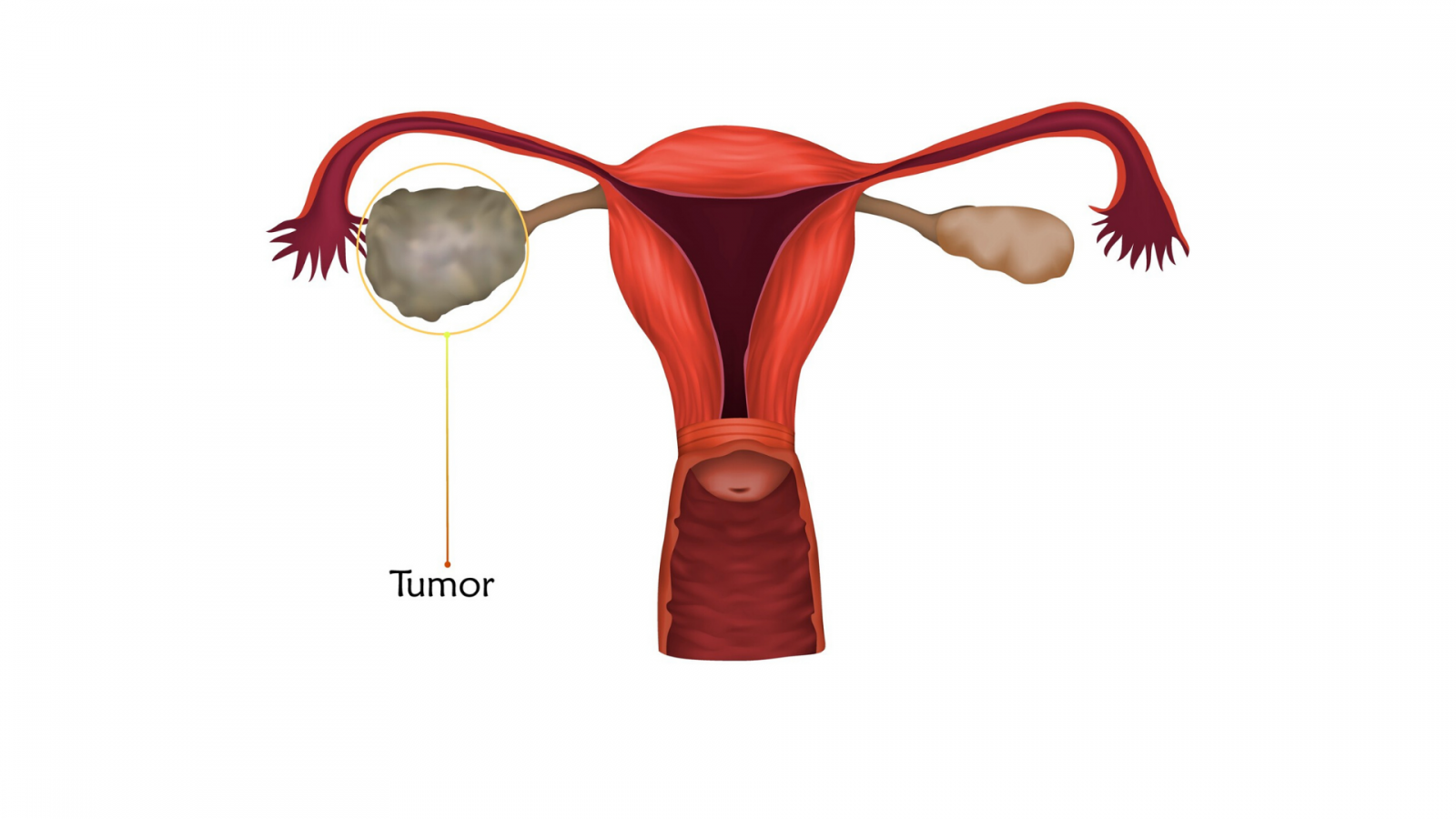Staging and grading ovarian cancer

- Grading means looking at the cancer cells to see how they might grow.
- Staging cancer means finding out its size, where the cancer cells are and if the cancer has spread.
- Knowing the stage and grade of your cancer helps your doctor to recommend the best treatment for you.
What are the grades of ovarian cancer?
The grade of the cancer can help the doctor to predict how quickly the cancer will grow. You can have a low-, moderate- or high-grade cancer. Lower grades are slower growing. Different grades may need different treatments.
- Grade 1 or low grade (well differentiated): The cancer cells are very like normal cells in your ovary. They usually grow slowly and are less likely to spread.
- Grade 2 or moderate grade (poorly differentiated): The cancer cells look less like normal ovarian cells.
- Grade 3 or high grade: The cancer cells are very unlike normal ovarian cells. They usually grow quicker and are more likely to spread.

What are the stages of ovarian cancer?
Staging means finding out how big the cancer is and if it has spread to other parts of your body. Staging will help your doctor to plan the best treatment for you. Sometimes your cancer will only be staged after surgery.
Staging normally refers to the size of the tumour (T), if there is cancer in your lymph nodes (N), and if the cancer has spread to other parts of your body (M for metastasis).
Your doctor often uses this information to give your cancer a number stage. In general, the lower the number, the less the cancer has spread. A higher number, such as stage 4, means a more advanced cancer.
Most ovarian cancers are diagnosed at stage 3 or 4. This is because with early-stage ovarian cancer there may be few or no symptoms.
Stage 1
Stage 1 cancer affects only your ovaries.
- 1a:The cancer is in one ovary only. The capsule around the ovary is
intact (not broken). - 1b: Like stage 1a except the cancer is in both ovaries.
- 1c: Tumour is in one ovary or in both ovaries, along with one of the
following:- 1c1: The capsule around the ovary breaks (ruptures) during surgery. This is called surgical spill.
1c2 The capsule breaks before surgery OR there is cancer on the surface of 1 or both ovaries.
1c3 There are cancer cells in the fluid in your abdomen (ascites) OR There are cancer cells in the peritoneal washings. Peritoneal washings refers to liquid used to wash the area around the organs in your abdomen and pelvis during surgery. The liquid is checked for cancer cells.
- 1c1: The capsule around the ovary breaks (ruptures) during surgery. This is called surgical spill.
Stage 2
Stage 2 cancer has spread outside your ovary / ovaries but is still within your pelvis.
- 2a The cancer cells have spread to organs near your ovary, such as your womb or fallopian tubes.
- 2b The cancer has spread to other organs in your pelvis, such as the lining of your lower bowel or bladder.
Stage 3
Stage 3 cancer has spread outside your pelvis and into your abdominal cavity. It can affect the lining of your abdomen or lymph nodes there.
These are called retroperitoneal lymph nodes. When lymph nodes have cancer in them they are called positive lymph nodes.
- 3a1: The cancer has spread to the retroperitoneal lymph nodes.
- 3a2: Cancer cells affect the lining of your abdomen but they are very tiny and can only be seen under a microscope. May or may not
have positive retroperitoneal lymph nodes. - 3b: The cancer in your abdomen can be seen with the naked eye but is smaller than 2cm across. May or may not have positive
retroperitoneal lymph nodes. - 3c: The cancer in your abdomen can be seen with the naked eye and is larger than 2cm. May or may not have positive retroperitoneal
lymph nodes. May have spread to the capsule around the liver or spleen.
Stage 4
Stage 4 cancer has spread to other organs away from the pelvis.
- 4a: There are cancer cells in the fluid between the membranes that cover the lungs (pleural fluid).
- 4b: The cancer has spread to the inside of other organs such as the lungs, the liver, the spleen, the brain. Also includes when the
cancer has spread to lymph nodes outside the pelvis, such as the groin, the neck, the armpit or the chest.

Staging can be hard to understand, so ask your doctor and nurse for more information if you need it.
Recurrent ovarian cancer
This means that the cancer has come back (recurred) after you have finished treatment. A cancer is only staged once. If it comes back, it is not re-staged but is called cancer recurrence.
For more information
Phone
1800 200 700



